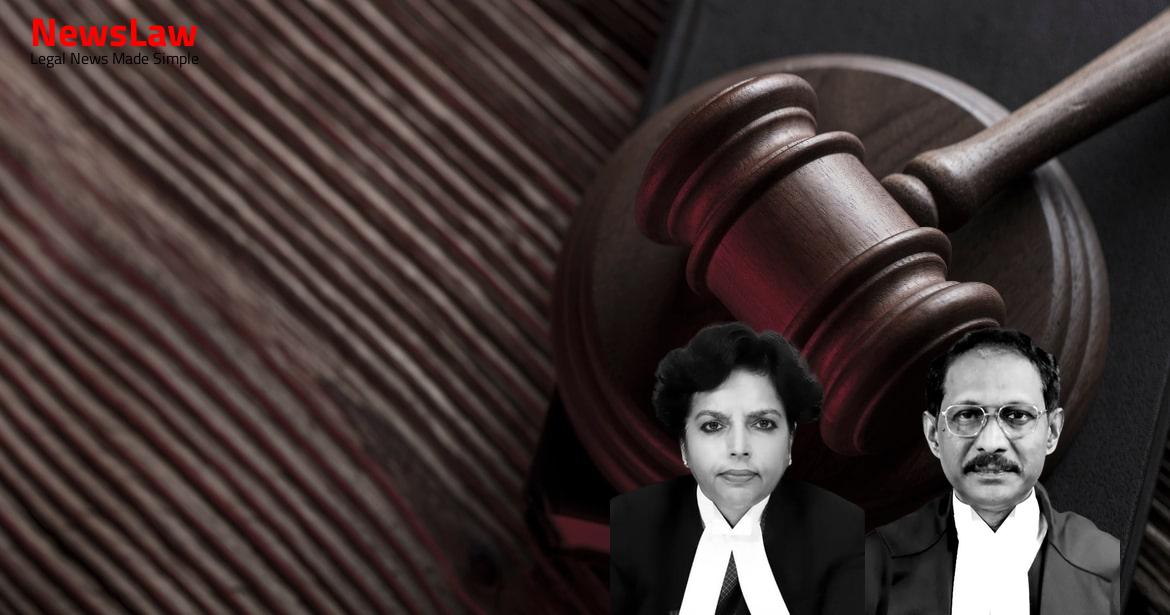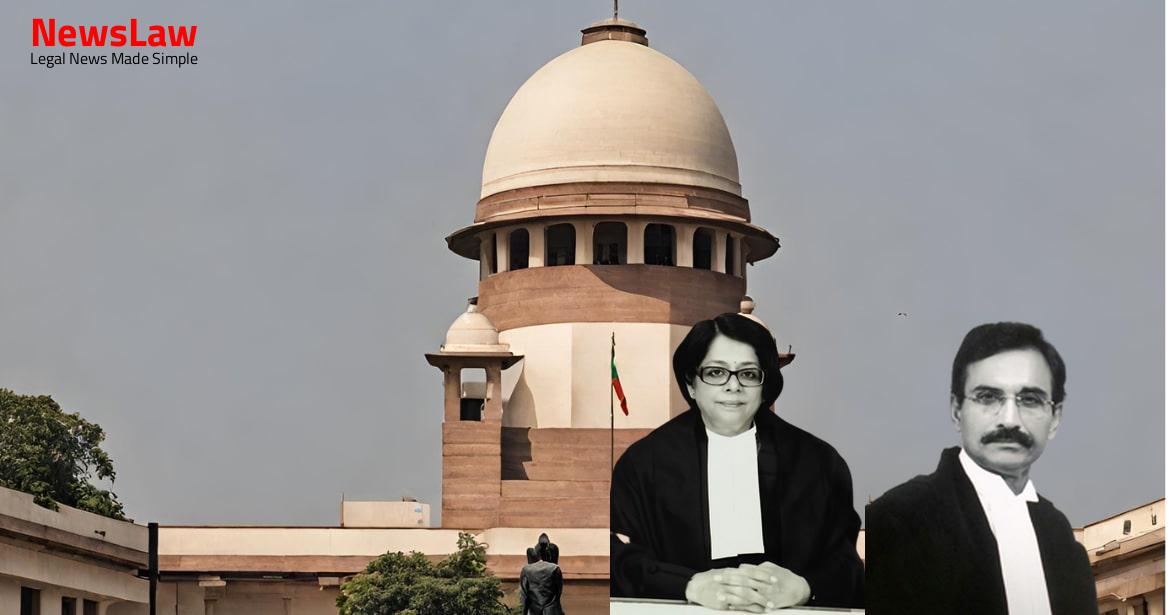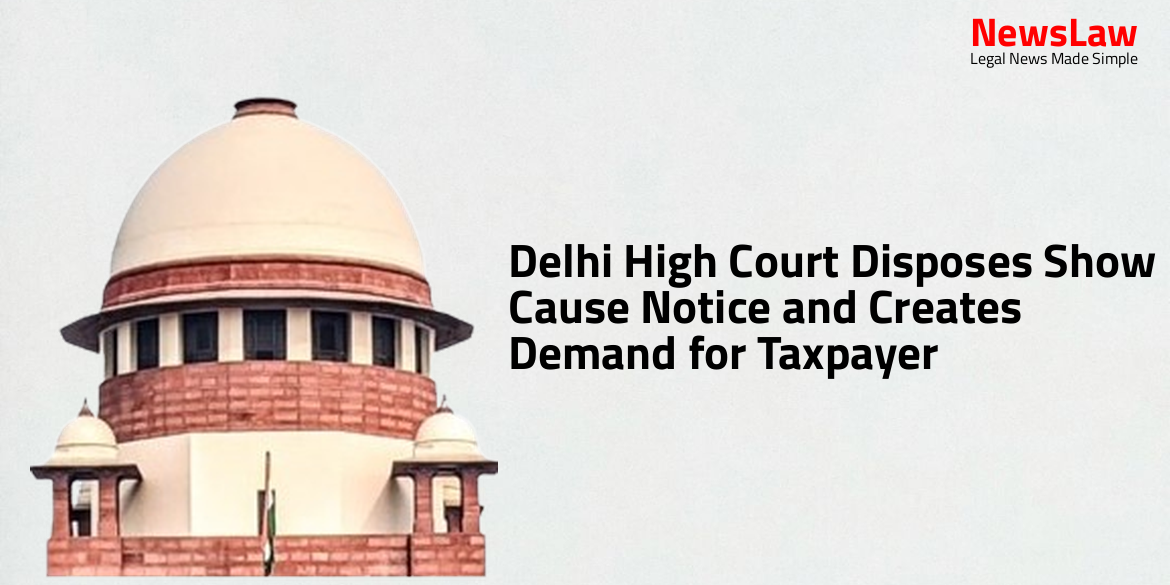In a recent legal case concerning a land dispute, the court analyzed the scope of review jurisdiction with precision. The court’s thorough examination highlights the strict conditions that must be met for review petitions to be granted. Through this legal analysis, we gain valuable insights into the complexities of the judicial review process.
Facts
- The appellant argued that the review petitions filed by respondents No. 1 to 6 were akin to the first set of review petitions which were already dismissed by the High Court.
- The scope of a review petition is limited to errors apparent on the face of the record, which the respondents failed to point out in this case.
- The appellant contended that the surrender proceedings conducted by the Tehsildar were fabricated, as evidenced by discrepancies in names and other documents.
- The respondents claimed that the surrender proceedings had already attained finality in 1967 and were only challenged after a long period of silence.
- The respondent’s appeals against the surrender order were allowed by the Appellate Authority behind the respondent’s back, leading to a series of legal proceedings.
- The High Court allowed the second set of review petitions filed by the respondents, setting aside previous orders and confirming the surrender of protected tenancy rights.
Also Read: Time as Essence of Contract in Sale Agreement: Legal Analysis
Issue
- The only point for consideration in these appeals is whether the respondents/review petitioners established a case for reviewing the judgment and order dated 23 March, 2013
- The criteria for entertaining a second set of review petitions after failing in the first set is to be determined
Also Read: Retirement Age of PTI/Sports Officer in University
Arguments
- Appellant argues that the review petitions filed by respondents are not maintainable as they do not meet the conditions for review under Order XLVII Rule 1 of the Civil Procedure Code, 1908.
- Ancestors of the appellant were not in possession of the subject land after 1967.
- Mis-description of the predecessor-in-interest of the appellant noted with reference to village revenue records.
- Landlord’s claim of exemption under land ceiling proceedings was not accepted by the Land Reforms Tribunal.
- Surrender of tenancy rights was finalized in 1967 and reopened after 35 years due to escalated land prices near Shamshabad International Airport.
Analysis
- Order XLVII of the CPC lists the grounds for filing a review application.
- The grounds include the discovery of new and important matters or evidence, mistakes or errors apparent on the face of the record, or for any other sufficient reason.
- Section 114 of the CPC outlines the scope of review, emphasizing the importance of the reasons for seeking a review.
- The provision underscores the need for diligence in presenting new evidence or pointing out mistakes in the judgment.
- Under the review jurisdiction, the error must be apparent on the face of the record and not require extensive research to find.
- Review jurisdiction could be statutory or inherent depending on the nature of the error.
- Review proceedings must adhere strictly to the scope of Order XLVII Rule 1 of the CPC.
- The Court cannot reevaluate evidence or arrive at a different conclusion during a review.
- A review petition cannot rehash old arguments that have already been overruled in a judgment.
- The power of review is distinct from appellate power, which corrects errors of subordinate courts.
- A party cannot challenge a judgment simply because an alternative view is possible.
- Review petitioners claiming new evidence must prove that it was not known earlier.
- The power to review a decision is not limited by Section 114 CPC, but grounds for review are outlined in Order XLVII Rule 1.
- The Court can only correct a mistake in a judgment and not substitute a previous view for a different one.
- A judgment can be reviewed if a new and crucial evidence emerges, not within the knowledge of the party during the previous order.
- Review jurisdiction can correct errors apparent on the face of the record, not erroneous decisions.
- The party seeking review must show due diligence in obtaining new evidence, which was not possible earlier.
- The respondents had multiple opportunities to present evidence but failed to do so in a timely manner.
- The respondents did not provide sufficient reasons or previously unknown evidence in their review petitions.
- Review jurisdiction is distinct from appellate jurisdiction, as confirmed by legal precedents.
- The respondents failed to demonstrate that the documents filed in the review petitions were newly discovered.
- The documents presented in the review were already available to the respondents earlier in the process.
- Multiple legal avenues were pursued by the respondents, but the same arguments were rehashed without presenting new crucial evidence.
- Non-production of relevant documents by respondents cannot be a ground for seeking review of the judgment.
- Five opportunities were available for production of documents, all of which were frittered away.
- No error apparent on the face of the record has been pointed out by respondents.
- Recourse to successive review petitions against the same order is impermissible.
- Respondents failed to show circumstances justifying invocation of review jurisdiction within the Rules.
Decision
- Parties to bear their own expenses
- Present appeals allowed
- Impugned judgment set aside
- Common judgment and order from 9 July, 2013 restored
Case Title: S. MADHUSUDHAN REDDY Vs. V. NARAYANA REDDY (2022 INSC 846)
Case Number: C.A. No.-005503-005504 / 2022



